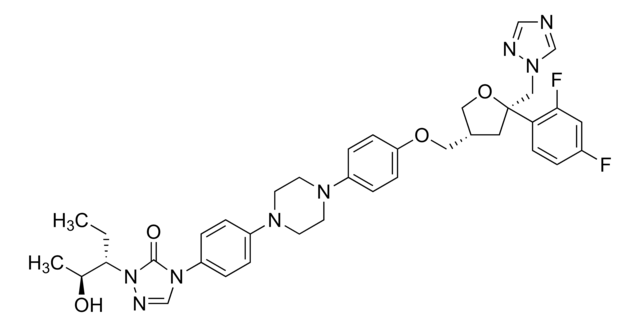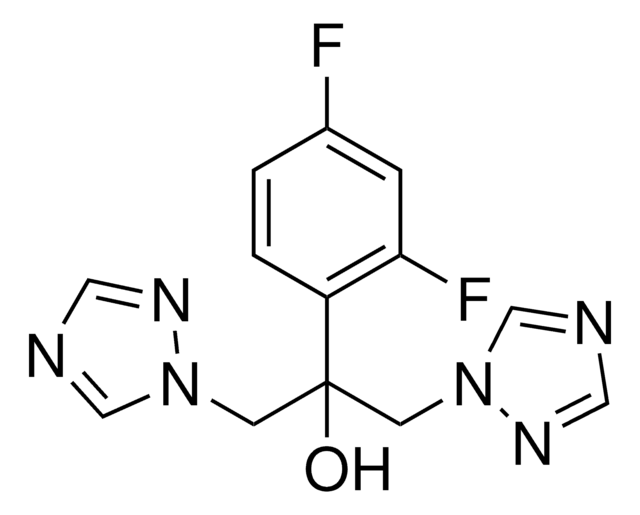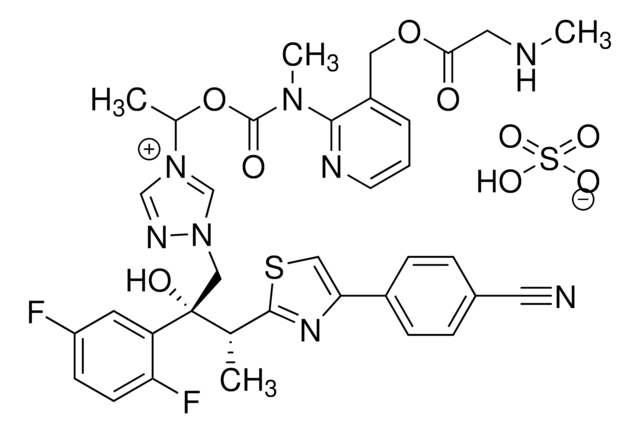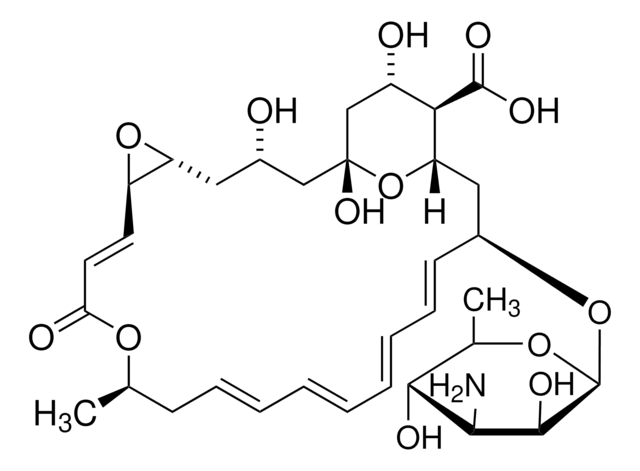SML2357
Isavuconazole
≥98% (HPLC), powder, fungal sterol biosynthesis inhibitor
Synonym(s):
(2R,3R)-3-[4-(4-Cyanophenyl)thiazol-2-yl]-2-(2,5-difluorophenyl)-1-(1H-1,2,4-triazol-1-yl)butan-2-ol, 1-[(2R,3R)-3-[4-(4-Cyanophenyl)thiazol-2-yl]-2-(2,5-difluorophenyl)-2-hydroxybutyl]-1,2,4-triazole, 4-[2-[(1R,2R)-2-(2,5-Difluorophenyl)-2-hydroxy-1-methyl-3-(1H-1,2,4-triazol-1-yl)propyl]-4-thiazolyl]benzonitrile, BAL 4815, RO 0094815
About This Item
Recommended Products
product name
Isavuconazole, ≥98% (HPLC)
Assay
≥98% (HPLC)
form
powder
color
white to beige
solubility
DMSO: 2 mg/mL, clear
storage temp.
2-8°C
InChI
1S/C22H17F2N5OS/c1-14(21-28-20(10-31-21)16-4-2-15(9-25)3-5-16)22(30,11-29-13-26-12-27-29)18-8-17(23)6-7-19(18)24/h2-8,10,12-14,30H,11H2,1H3/t14-,22+/m0/s1
InChI key
DDFOUSQFMYRUQK-RCDICMHDSA-N
Application
to analyze its in vitro activity against isolates from the R. argillacea species complex A. fumigatus, N. hiratsukae and C. parapsilosis.
Biochem/physiol Actions
Signal Word
Warning
Hazard Statements
Precautionary Statements
Hazard Classifications
Repr. 2
Storage Class Code
11 - Combustible Solids
WGK
WGK 3
Flash Point(F)
Not applicable
Flash Point(C)
Not applicable
Regulatory Listings
Regulatory Listings are mainly provided for chemical products. Only limited information can be provided here for non-chemical products. No entry means none of the components are listed. It is the user’s obligation to ensure the safe and legal use of the product.
PDSCL
Deleterious substance
JAN Code
SML2357-BULK:
SML2357-25MG:4548173357348
SML2357-VAR:
SML2357-5MG:4548173357355
Certificates of Analysis (COA)
Search for Certificates of Analysis (COA) by entering the products Lot/Batch Number. Lot and Batch Numbers can be found on a product’s label following the words ‘Lot’ or ‘Batch’.
Already Own This Product?
Find documentation for the products that you have recently purchased in the Document Library.
Customers Also Viewed
Our team of scientists has experience in all areas of research including Life Science, Material Science, Chemical Synthesis, Chromatography, Analytical and many others.
Contact Technical Service












